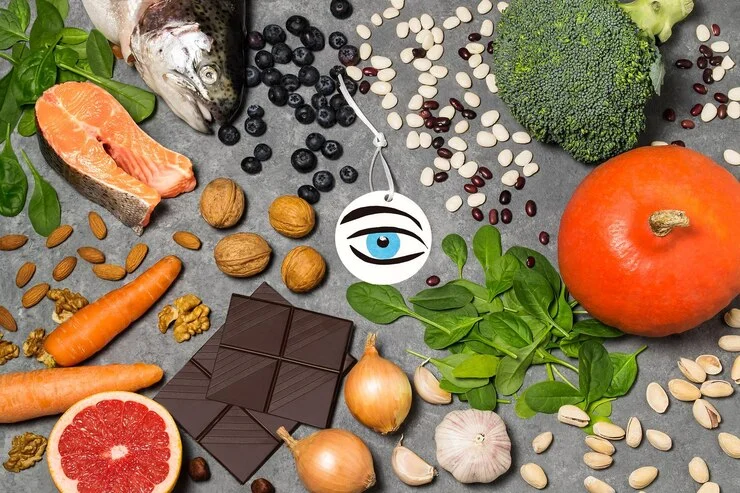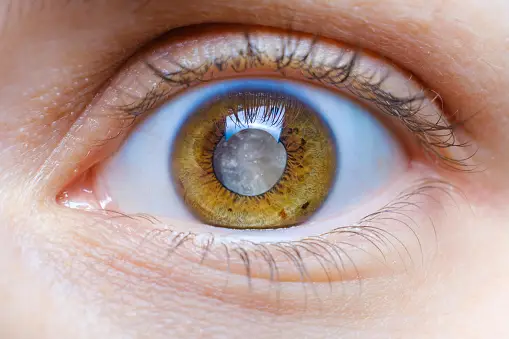-
Pushpanjali Eye Care Hospital, Golpark, Kolkata-700029
Pushpanjali Eye Care Hospital, Golpark, Kolkata-700029

By PushpanjaliEyeCare
11.11.2024
Hello Reader!
Welcome to the blog page of Pushpanjali Eye Hospital, the best eye hospital in Kolkata.
Discover the essential nutrients that can enhance your eye health. Learn how a balanced diet can make a difference, with insights from the Best opthamology in Kolkata.
Maintaining optimal eye health is crucial, yet often overlooked in our daily routines. As we age, the importance of caring for our eyes becomes even more evident. Diet plays a significant role in eye health, and certain nutrients can help protect and improve vision. In this article, we’ll explore the essential nutrients you should incorporate into your diet for better eye health, with insights from experts at the Best Eye care in Kolkata.

Before diving into specific nutrients, it’s essential to understand what factors affect eye health. Our eyes are exposed to various environmental stresses, including pollution, UV light, and digital screens. Moreover, aging can lead to conditions such as cataracts, age-related macular degeneration (AMD), and dry eyes. By understanding the role of nutrition, we can take proactive steps to safeguard our vision.
Nutrition is the foundation of overall health, and it significantly influences our eyes. Just as certain nutrients can bolster the immune system or support heart health, they can also play a critical role in preserving and enhancing vision. Here are some vital nutrients that contribute to eye health:
Why It Matters:
Vitamin A is vital for maintaining good vision, particularly in low-light conditions. It helps form the pigments in the retina, enabling us to see in dim light. Deficiency in vitamin A can lead to night blindness and other severe visual impairments.
Sources:
Why It Matters:
As a powerful antioxidant, vitamin C protects the eyes against damage from free radicals, potentially reducing the risk of cataracts and AMD. It also helps in collagen production, which is essential for the health of the cornea.
Sources:
Why It Matters:
Vitamin E plays a role in protecting the eyes from oxidative stress. It can help slow down the progression of age-related eye diseases. This fat-soluble vitamin is crucial for maintaining the health of the cell membranes in the eye.
Sources:
Why They Matter:
These carotenoids are found in high concentrations in the retina. They protect the eyes from harmful light waves and oxidative stress, potentially lowering the risk of AMD and cataracts. Lutein and zeaxanthin also help filter blue light, which can damage retinal cells.
Sources:
Why They Matter:
Omega-3s are essential for retinal health and may help reduce the risk of dry eyes and AMD. They play a crucial role in maintaining proper tear production and can help alleviate symptoms of dry eye syndrome.
Sources:
Why It Matters:
Zinc is vital for transporting vitamin A from the liver to the retina, where it helps produce melanin, a protective pigment in the eyes. Adequate zinc levels are linked to better night vision and may help prevent AMD.
Sources:
Why It Matters:
Beta-carotene, a precursor to vitamin A, is another important nutrient for eye health. It helps improve vision in low-light conditions and protects against macular degeneration.
Sources:
Why They Matter:
These powerful antioxidants can help improve night vision and reduce the risk of cataracts. They protect the blood vessels in the eyes and promote better circulation.
Sources:
Read here for more:- Why Consider Oculoplastic Surgery for Better Eye Health and Appearance?

Incorporating these nutrients into your diet doesn’t have to be complicated. Here are some practical tips to create an eye-healthy eating plan:
While nutrition plays a significant role in eye health, several lifestyle factors can also influence your vision. Here are some essential tips:

While supplements can be beneficial, whole foods provide a complex mix of nutrients that work together for optimal health. It’s best to get your vitamins and minerals from a varied diet.
Regular eye exams by professionals at the Best Eye Hospital in Kolkata can help monitor your eye health. Signs of trouble may include blurred vision, dry eyes, or difficulty seeing at night.
Limiting foods high in sugar, unhealthy fats, and sodium can help reduce the risk of eye problems. Focus on a balanced diet rich in antioxidants and essential nutrients.
It’s recommended to have an eye exam every one to two years, but those with existing eye conditions or risk factors may need more frequent visits.
A balanced diet rich in eye-friendly nutrients can lower the risk of developing age-related eye diseases, but it’s essential to combine a healthy diet with regular eye care.
While diet alone cannot correct refractive errors like nearsightedness or farsightedness, it can help maintain overall eye health and potentially prevent degenerative conditions that affect vision.
If you’re not a fan of fish, there are plant-based sources of omega-3s, such as flaxseeds, chia seeds, and walnuts. You can also consider algae-based supplements for a vegetarian option.
Incorporating essential nutrients into your diet is a proactive step toward maintaining good eye health. By focusing on foods rich in vitamins A, C, and E, as well as lutein, zeaxanthin, omega-3 fatty acids, and zinc, you can help protect your eyes against potential diseases and maintain your vision for years to come.
Ultimately, adopting a balanced diet and making informed lifestyle choices will contribute to long-term eye health. Remember, for personalized advice and eye care, visiting the Best Eye Hospital in Kolkata is always a wise choice. Prioritize your eye health today for a brighter tomorrow!